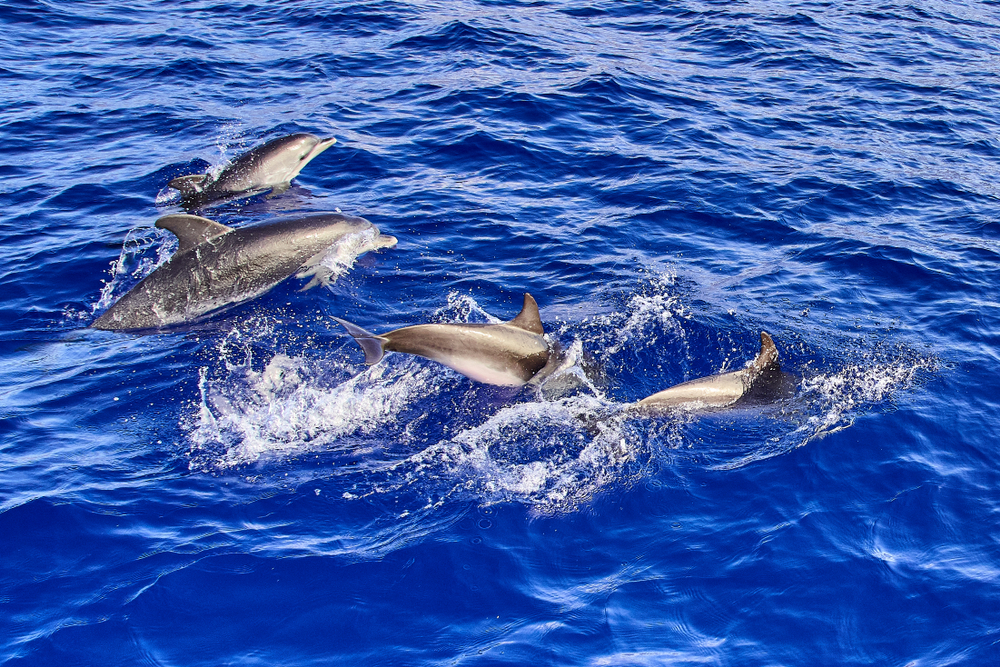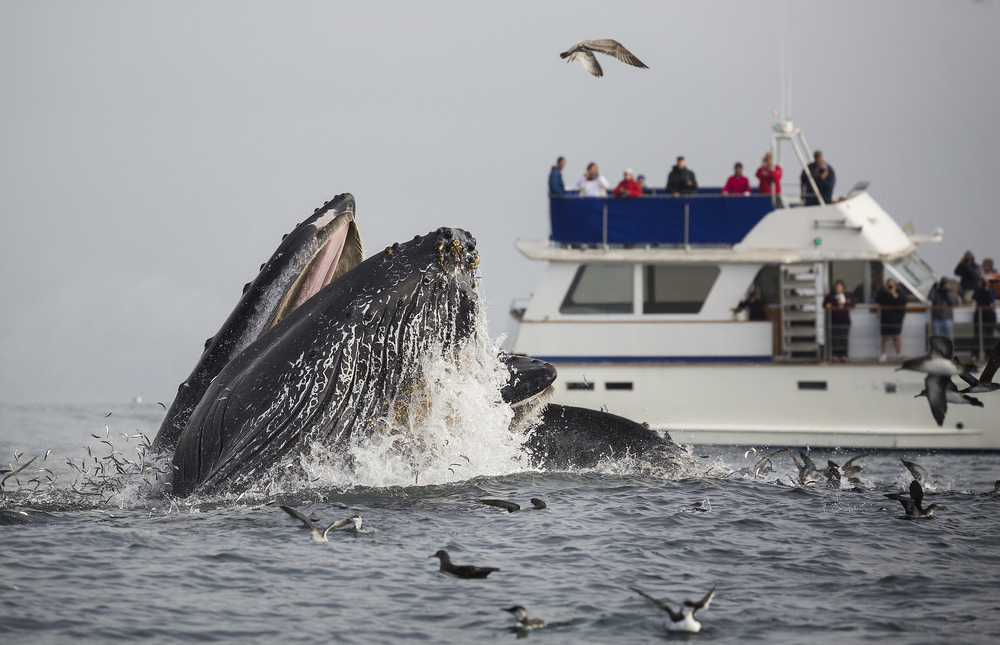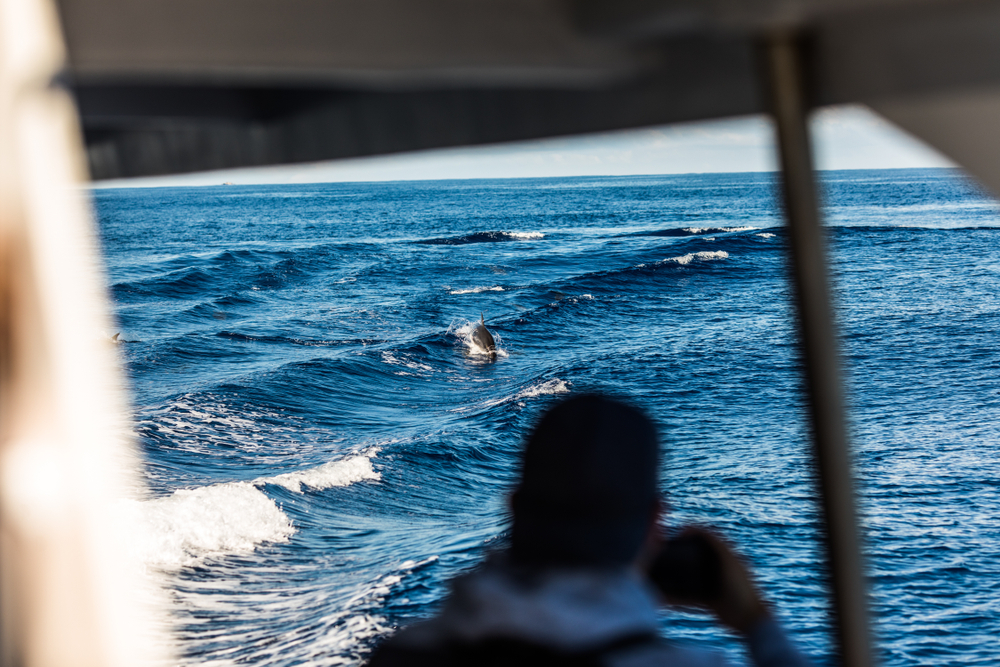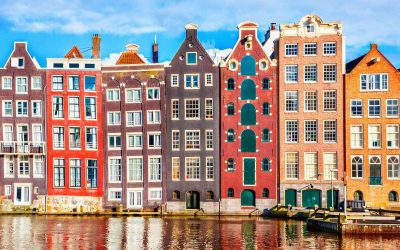If you are planning on spending your vacation in Portugal, make sure you visit Madeira. This is an archipelago of four islands and one of only a few places in the world where you can find dolphins and whales in their natural habitat. The period of time between April and October is just the right time for traveling to Madeira – the majority of whales can be found in the area during these months.
Table of Contents
Species

There are several species that you can expect to see around Madeira. These are dolphins, rorquals, cachalots, beaked whales, and right whales. Here are some tips for you to distinguish them from each other.
Dolphins
There are several types of dolphins in the waters of Madeira. The most notable among the others are the following.
Bottlenose dolphins are famous for being the most intelligent species, capable of completing simple tasks (they interpret the returning echoes of different objects to learn about their size, shape, and et cetera). Atlantic spotted dolphins are covered in spots (if talking about the adults). There are larger and smaller types, and they’re also varying in size. Infant Atlantic spotted dolphins have no spots at all and look a lot like bottlenose dolphins. Short-beaked common dolphins can speed up to 50-60 km/h and are considered the quickest mammals of all cetaceans.
Rorquals (Whales)
Whales, similar to dolphins, deserve the attention of the Madeira visitors. It might be useful for you to know the difference between some of the most frequently occurring species.
Bryde’s whales don’t have jaws – they operate with baleens and are not capable of echolocating. Humpback whales are known for having the same baleen plates as Bryde’s whales. They will definitely be heard by everyone around them when they perform their famous songs or jump above the water.
Cachalots
Cachalots also belong to the whale family, and they are the largest of toothed whales. There are three species that live in the waters of Madeira.
Sperm whales are the biggest of all the toothed whales, famous for holding their breath for an hour and diving in depth of the ocean. Dwarf sperm whales appear very rarely and expel a special dark liquid when being scared off by enemies. Pygmy sperm whales share the same survival instinct with dwarf sperm whales, and can also be characterized by a passive way of life.
Beaked and right whales
Beaked whales form one of the least known groups of mammals because they live deep below the sea level: only ⅛ of their total number is known at the moment.
One of the beaked whales species is called cuvier’s beaked whales, the deepest mammal discovered today, that dives at a speed of 100m per minute. The deepest distance reached by cuvier’s beaked whales ever was almost 3000 meters.
The North Atlantic Right Whales are quite rare: fewer than 400 species are registered at the moment. They are notable for slowly floating in the water.
Recommendations to consider before booking your tour

Before going to Madeira, make a plan – there are many more available activities than just watching whales (which is impressive, but not everything). These are some ideas for you:
Visit the Whale Museum in Canical
To learn more about the whales, their history, along with all those discovered species, go to the Whale Museum on the North of the East coast, Museu de Baleia da Madeira. Large models of whales that can be studied by the visitors give a great opportunity to have a closer look at the whales.
Watch whales from the shore, or go to an open sea
People suffering from seasickness should not give up on seeing the whales – there are a lot of viewpoints on the shore. Binoculars can be very helpful in this case. Ponta do Garajau is a perfect place to watch whales. If you want to look closely, you can rent a boat and watch whales closely. Specially trained guides will make your boat trip safe and pleasant.
Swim with the dolphins
You are allowed to establish closer contact with dolphins if there are more than 3 species around. Opportunities like this don’t come along very often, so don’t pass them. Dolphins love people and communicate actively, never causing any harm. There is nothing to be afraid of as long as you do not scare or offend them.
To make the most of your voyage and not get into any sort of trouble, please follow these recommendations:
Get ready to swim
Prepare your swimming suit in advance.
Bring warm clothes and sunglasses
Both will be helpful in any sudden change of weather.
Be prepared for seasickness
If you suffer from it, take pills in advance, do not eat too much before the trip and get a seat at the back – it’s a properly ventilated place on the ship.

Ready for an unforgettable experience in Madeira? Don’t miss the right time to watch whales.


